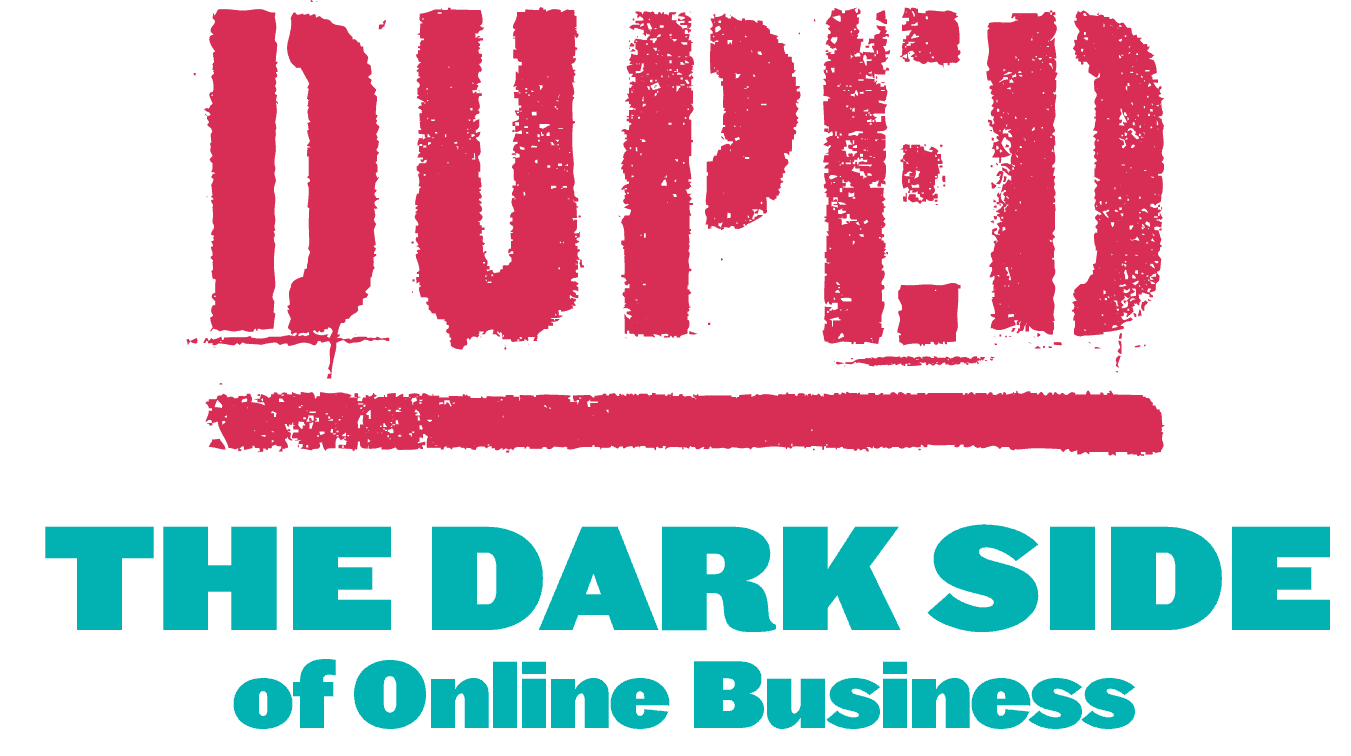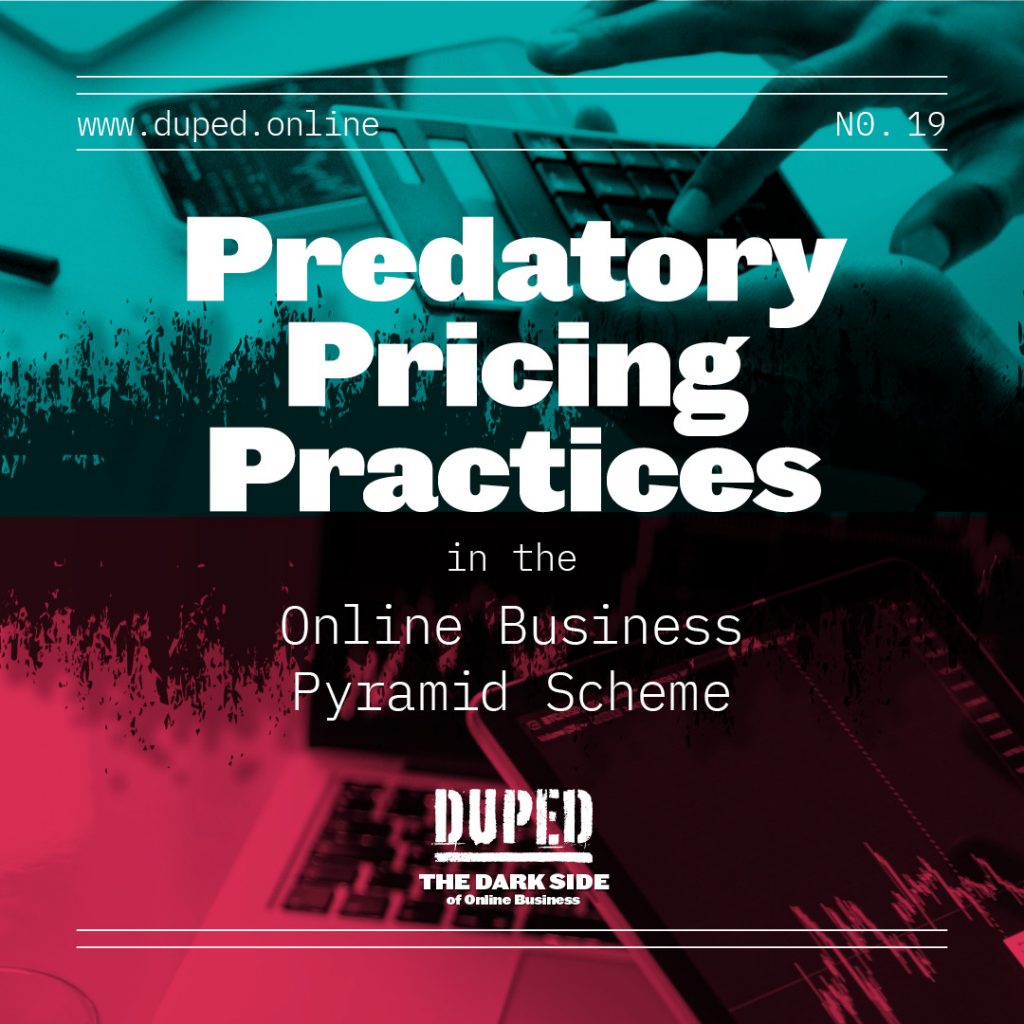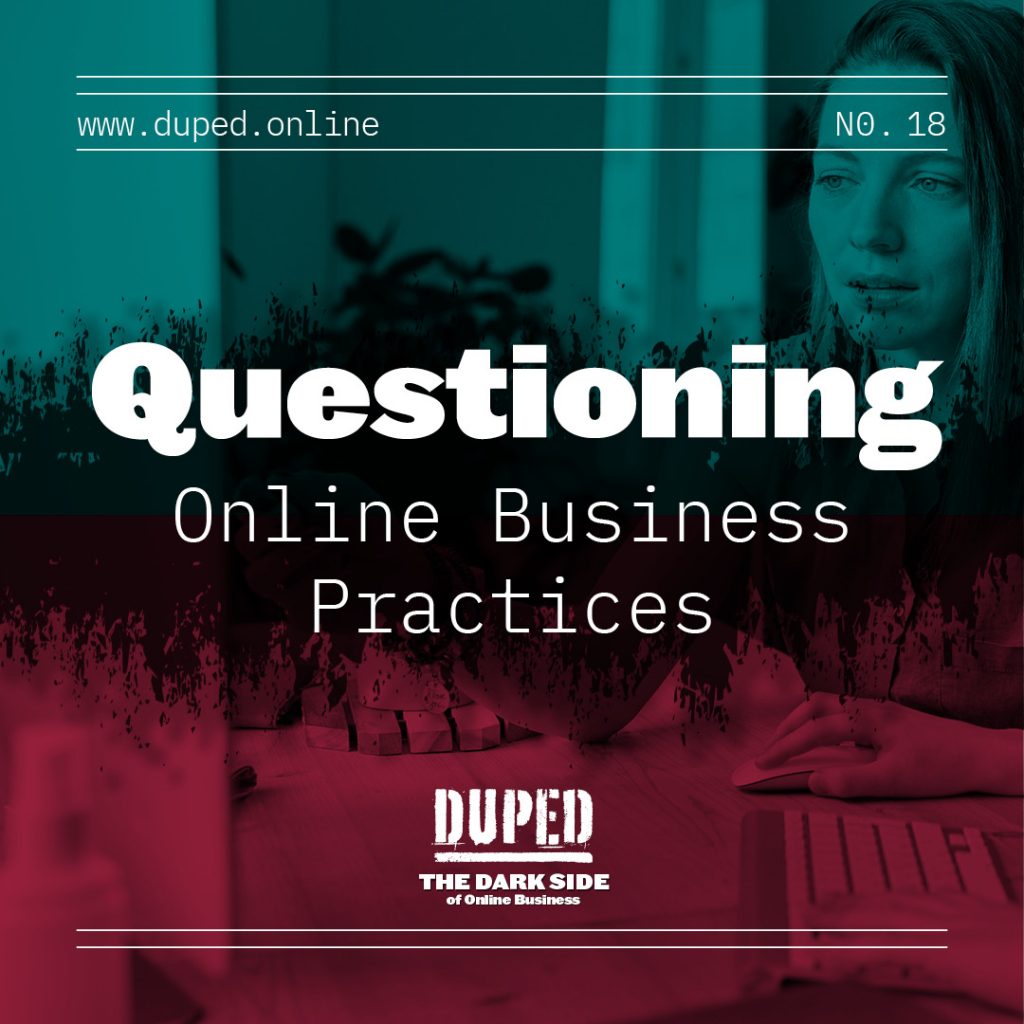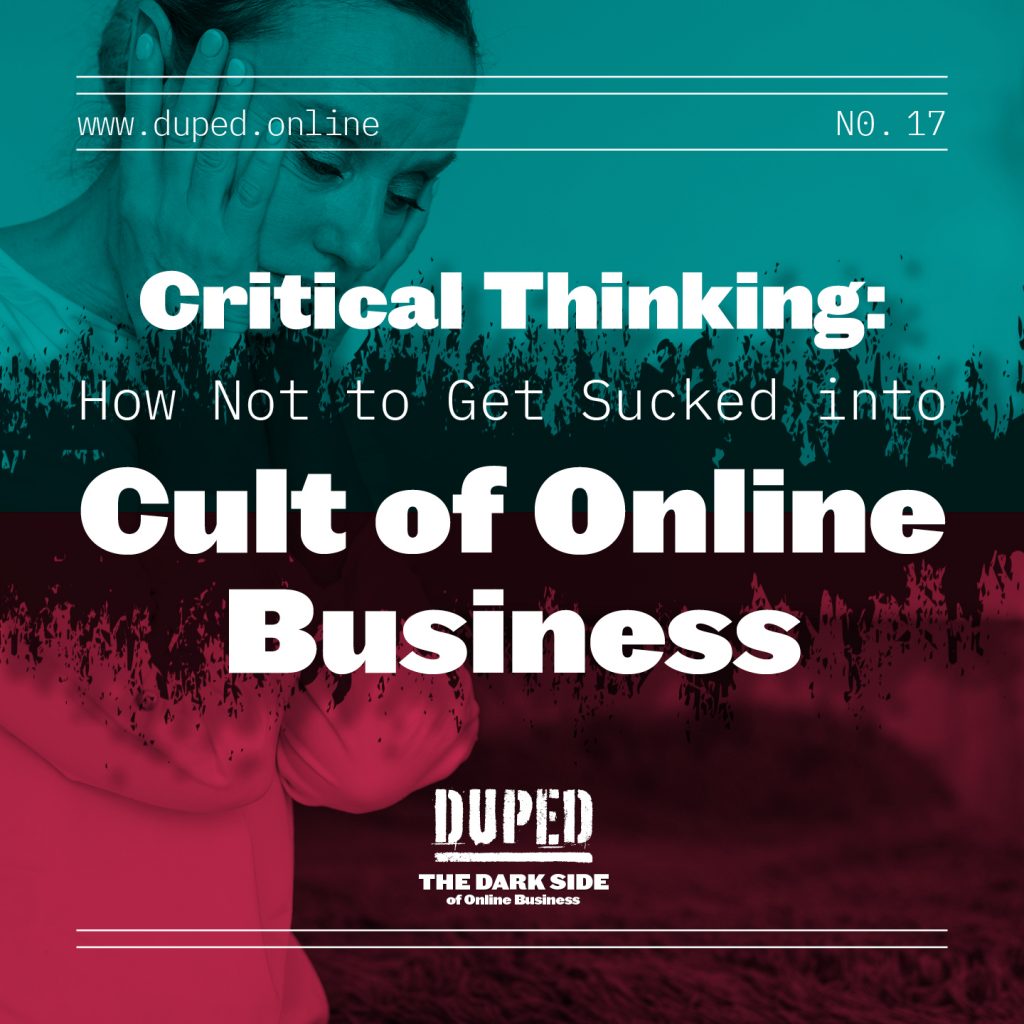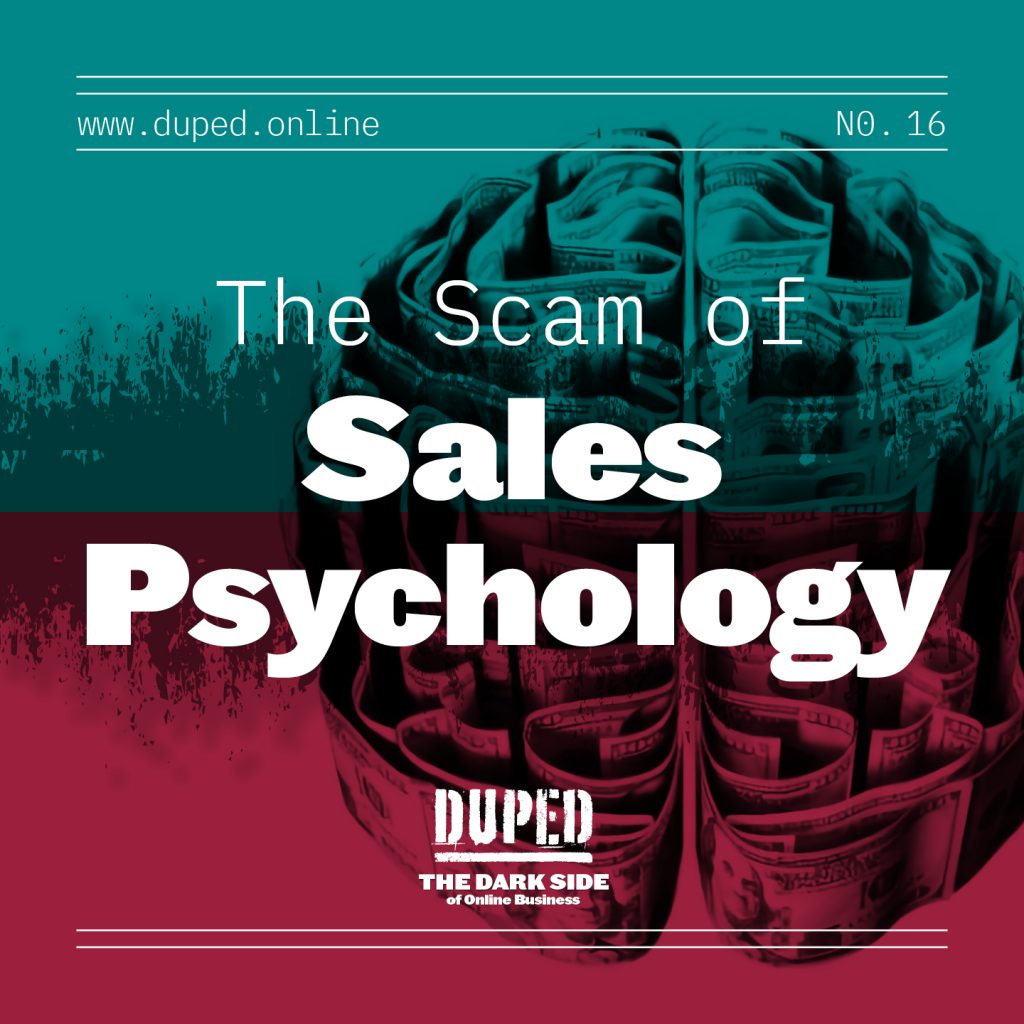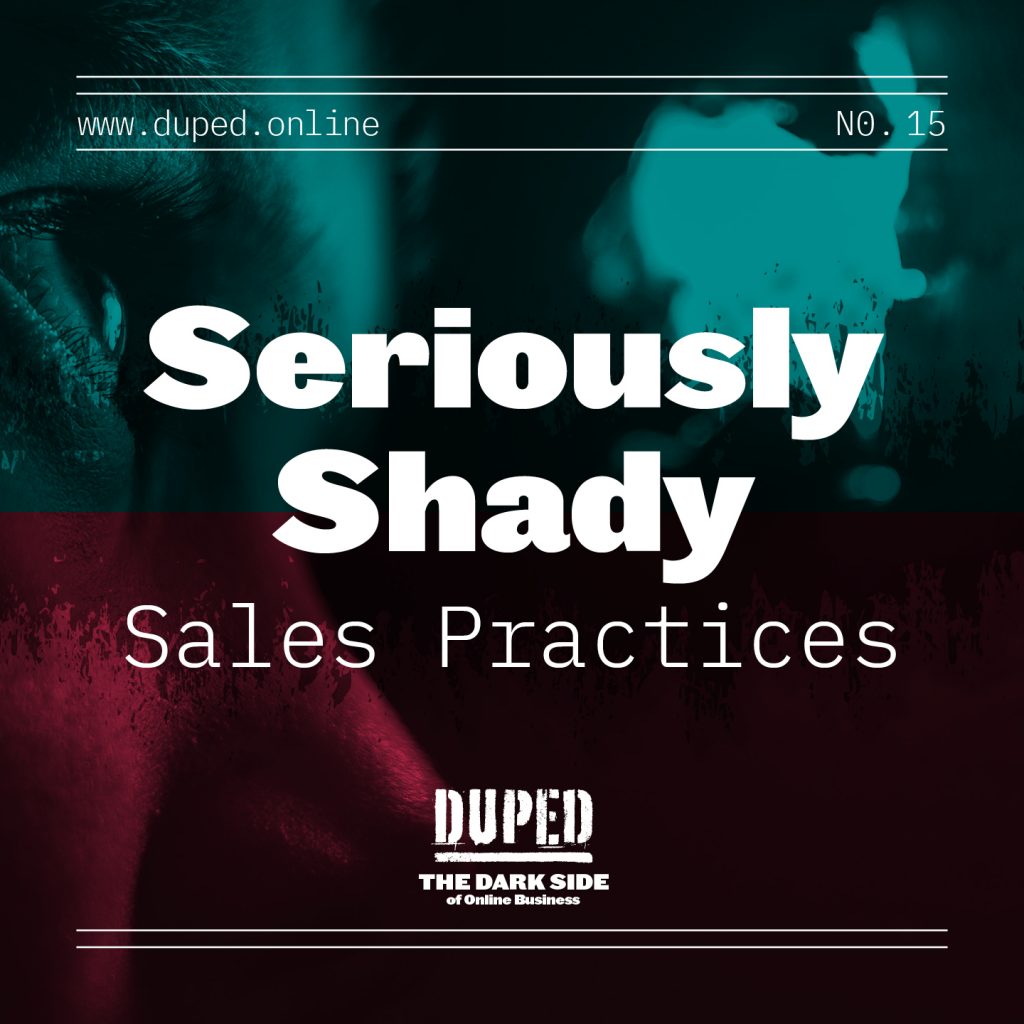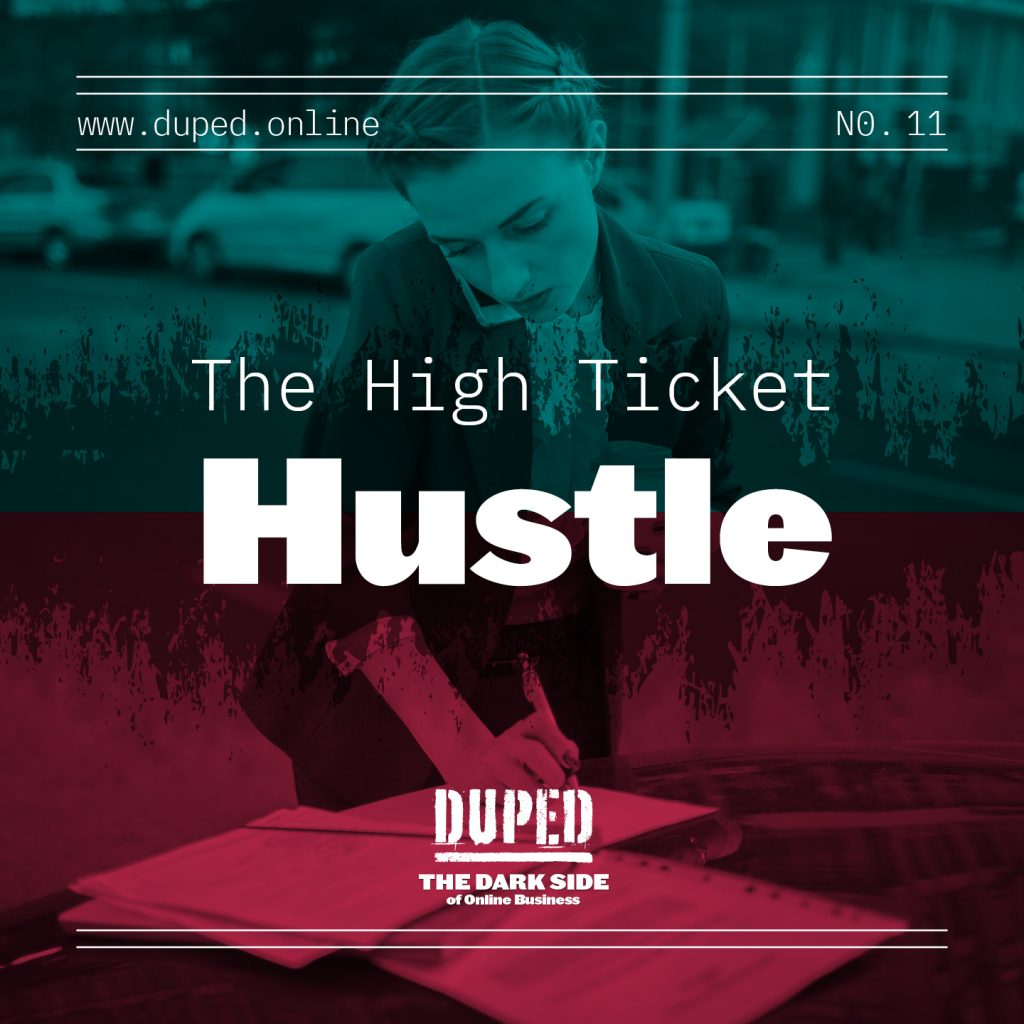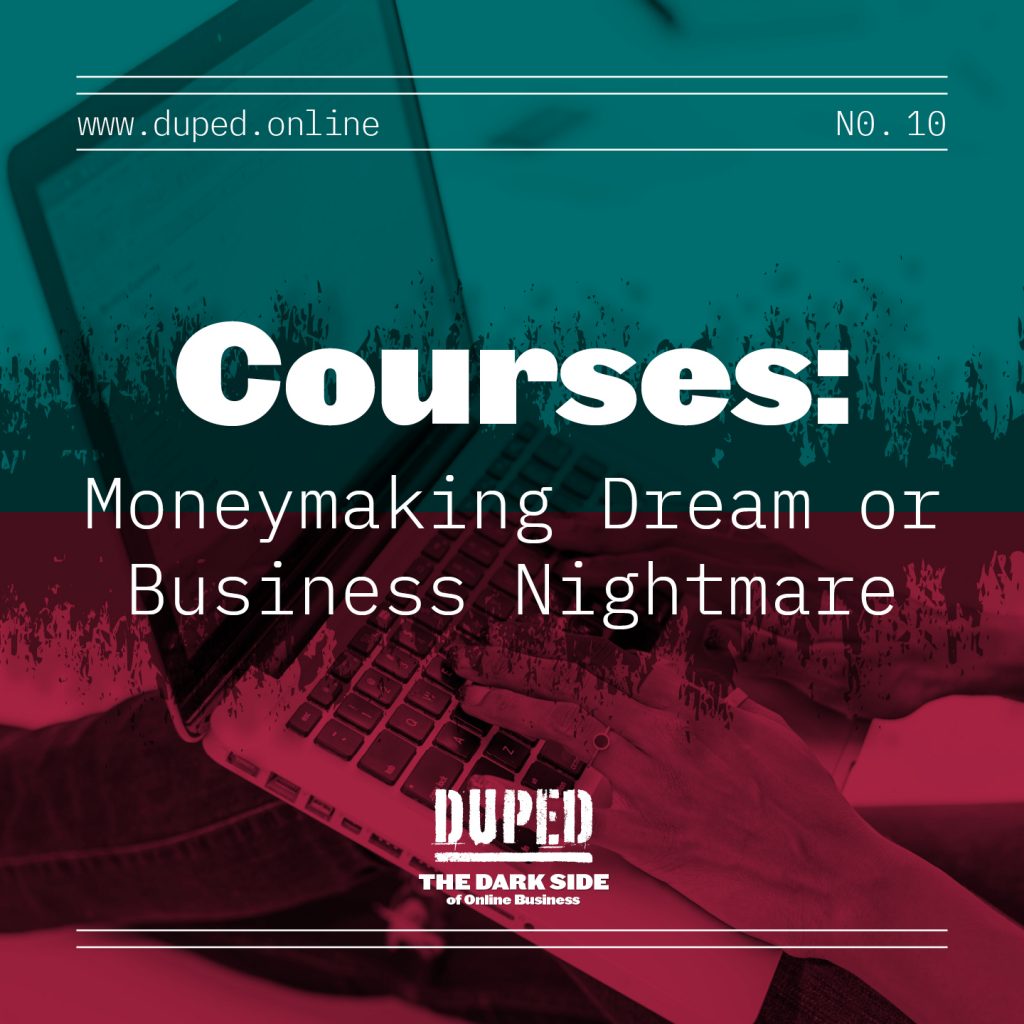
Vetting Coaches and Programs: What to Watch For
How do you decide if a program is worth investing in? If it will get you the results? How do you even know if the business owner is credible to run that program? Too many times a slick sales page and manipulative marketing tactics can prevent you from doing your due diligence on a program before you invest.
In this season finale of Duped, we are going to talk about how you can be vet coaches, consultants and programs so you can make an informed decision when investing in your business.

At its heart, Duped is about consumer advocacy. We are committed to helping you think critically about the investments you choose to make in your business.
Recently, There’s been a lot of talk about whether people should name names in the online space. It’s always been the policy of this podcast not to name names unless there has been a news story about that person.
We do this for three very good reasons:
#1. On the advice of legal counsel, we don’t name names (we don’t want to be sued)
#2. Whether an online business owner is good or bad is highly nuanced. We do not want to be the arbitrators of making that call. We trust you to be smart enough to figure it out for yourself. That may seem like we’re being wishy-washy, but trust me when I say it’s very deliberate. Going along with other people’s prescriptive advice in online business is what got us into this mess. We believe that you need to trust yourself.
#3. The whack-a-mole principle – new business owners with sketchy business practices are popping up all the time. It’s more important that you’re able to vet coaches and programs than rely on any online business persona to tell you who you want to do business with or not.
That’s why for our final episode of Duped – we wanted to talk about how you can vet coaches and programs so you can make the best decision about who you want to work with.
Specifically, we are going to look at three areas to vet business owners and programs: qualifications, testimonials, and believability.
Why Are They Qualified?
There are a lot of people who’ve started a business and don’t have the qualifications to do that business or charge the amount of money they are charging. .
There are a lot of reasons this happens. Some of the biggest web celebs out there tell you that anyone can start a business. No experience. No problem. I did it and you can too!!!
We’ve talked before about how people are taught to manufacture authority whether it’s through a rag to riches story or buying PR.
There are multiple red flags to look out for when people vet a coach or consultant, which we’ll get into in a moment.
But first, before purchasing any kind of program, I want you to have this question in your head “Why are they qualified?” Then read their about page and bio and see if you can answer that.
Beware of these red flags:
- Their about page is all about YOU and doesn’t mention their own credentials.
- Their credibility rests solely on the fact they built their own business, had a successful launch, or how much money they make in their own business.
- There are gaps in their story (e.g. I use to be a teacher and then I started my business as a marketing consultant) – wait how did you learn how to market?
- Watch out for “If I can do it, you can too.” Just because you did something for yourself doesn’t mean you can do it for others.
- No mention of their own relevant experience
If you can’t answer the question of why they’re qualified quickly and easily, that should be treated as a red flag. With someone who’s actually experienced and credible, you won’t have to go digging.
Be Wary of Testimonials
In the season finale of the second season of Duped, we talked about critical thinking and how easy it is to see 20 testimonials all touting how much money people made because of a program and think “damn, this program works. I’m in.”
But what we don’t see is the 100s or 1000s of people who took a program and didn’t see results.
The term survivorship bias was first coined by Abraham Wald. DecisionLab explains it as “Survivorship bias is a cognitive shortcut that occurs when a visible successful subgroup is mistaken as an entire group, due to the failure subgroup not being visible. The bias’ name comes from the error an individual makes when a data set only considers the “surviving” observations, without considering those which didn’t survive.”
It shows up everywhere across all industries.
This is why it’s important to vet testimonials and be wary of them.
Realize that there are testimonial “yellow” flags to look out for.
- Endorsed by a big name in their industry but the testimonial speaks to them as a person.
- Relatedly, testimonials that are more about the coach than the outcomes of the program
- All income claims — or FB comments — about how much money they are making. These lack context.
Look for well-rounded testimonials that speak to the outcomes of the program (both tangible and intangible) as well as the experience of the program.
Don’t be afraid to GOOGLE the testimonial giver to see if you can assess if that program really worked out for them.
Finally, let’s put your critical thinking to the test.
Test For Believability
Do you believe that the program being offered will actually get the result being promised?
Recently, I was in a funnel for a program. Basically, the promise was “if you implement our systems then you’ll double your income.”
On its face, I’d love to believe that if I had a different system I could double my revenue. It sounds so easy.
But in reality, I knew that the only way I could double my revenue was to double my prices or hire another messaging strategist and train them to do what I do. No system was going to get me there.
A program should be able to connect the dots between what is being promised as a result and what is offered. This is about building an argument for your work. If a business owner can’t lead you from their solution to the result being promised – that’s a huge red flag.
Lightning Round of Vetting Programs
Some other things people should look out for when vetting a program or coach:
- Ask why are they qualified – it should be obvious to you why the person running a program is qualified to run it – if not then buyer beware
- Be wary of testimonials – testimonials can be helpful in seeing what’s possible in a program but at the same time – be heavily skeptical
- Test for believability – do you think the solution being offered can get you to the result?
- Follow your gut. So many people slide in my and Maggie’s DMs asking us about specific business owners or programs because something seems off. If it seems off to you, it probably is. Trust your gut.
Links for this episode:
Join the

Patreon

for only $7/month and get a
monthly bonus episode,
behind-the-scenes content
and more.
